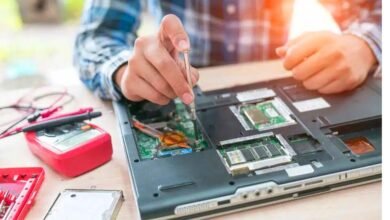
Gaming PC on a budget has become an increasingly popular form of entertainment in recent years, and building your own gaming PC can be a great way to experience the best possible graphics and performance while keeping costs under control. However, it can be a daunting task to build your own gaming PC, especially if you’re on a budget. In this article, we’ll guide you through the process of building your own gaming PC on a budget, from selecting the right components to putting it all together.
Benefits of Building Your Own Gaming PC
Before we dive into the process of building your own gaming PC, let’s talk about why you might want to consider building your own PC instead of buying a pre-built system. There are several benefits to building your own gaming PC, including:
- Cost Savings: Building your own PC can often be cheaper than buying a pre-built system. By selecting your own components, you can find the best deals and avoid paying for features you don’t need.
- Customizability: Building your own PC allows you to customize your system to your specific needs and preferences. You can choose components that are tailored to your desired performance, aesthetics, and budget.
- Performance: By selecting your own components, you can ensure that your PC is optimized for the specific tasks you plan to use it for, including gaming.
- Experience: Building your own PC can be a rewarding and educational experience, allowing you to learn more about computer hardware and how it works.
Choosing the Right Components
The first step in building your own gaming PC is selecting the right components. There are several key components that you’ll need to consider, including:
Processor
The processor, or CPU, is the brain of your PC. It’s responsible for performing the calculations and operations necessary to run your games and other software. When selecting a processor, you’ll want to consider factors like:
- Core Count: The number of cores in a processor determines how many tasks it can perform simultaneously. More cores generally mean better performance, but also come at a higher cost.
- Clock Speed: The clock speed of a processor is a measure of how quickly it can perform calculations. Higher clock speeds generally mean better performance, but also come at a higher cost.
- Brand: AMD and Intel are the two main brands of processors on the market. Both have their strengths and weaknesses, so you’ll want to research the specific models that fit your needs and budget.
Graphics Card
The graphics card, or GPU, is responsible for rendering the images and video in your games. It’s one of the most important components for gaming performance. When selecting a graphics card, you’ll want to consider factors like:
- Performance: The performance of a graphics card is measured in frames per second.
Motherboard
The motherboard is the main circuit board that connects all the components in your PC together. When selecting a motherboard, you’ll want to consider factors like:
- Compatibility: Make sure that the motherboard you select is compatible with your processor and other components.
- Expansion: Consider how many expansion slots and ports the motherboard has, as this will determine how many components you can add to your system in the future.
Memory (RAM)
RAM, or Random Access Memory, is temporary storage that your PC uses to run applications and games. When selecting RAM, you’ll want to consider factors like:
- Capacity: The amount of RAM you need will depend on the specific games and applications you plan to run. 8GB is usually the minimum for gaming, but 16GB or more is recommended for optimal performance.
- Speed: The speed of the RAM is measured in MHz. Faster RAM generally means better performance, but also comes at a higher cost.
Storage (SSD/HDD)
Storage is where your PC stores all your files, games, and applications. There are two main types of storage: solid-state drives (SSDs) and hard disk drives (HDDs). When selecting storage, you’ll want to consider factors like:
- Capacity: The amount of storage you need will depend on how many games, files, and applications you plan to store on your PC.
- Type: SSDs are faster and more expensive than HDDs, but offer better performance. HDDs are slower but offer more storage for the price.
Power Supply Unit (PSU)
The PSU is responsible for supplying power to all the components in your PC. When selecting a PSU, you’ll want to consider factors like:
- Wattage: The wattage of the PSU will depend on the specific components in your system. A 500W PSU is usually sufficient for a budget gaming PC.
- Efficiency: An efficient PSU will save you money on your electricity bill and produce less heat.
- Modularity: A modular PSU allows you to only use the cables you need, reducing cable clutter and improving airflow.
Case
The case is what houses all your components and provides airflow to keep everything cool. When selecting a case, you’ll want to consider factors like:
- Size: Make sure the case is the right size for your motherboard and other components.
- Airflow: Look for a case with good airflow to keep your components cool.
- Aesthetics: Consider the look and style of the case, as it will be a visible part of your setup.
Cooling
Proper cooling is important to keep your components running smoothly and prevent overheating. When selecting cooling components, you’ll want to consider factors like:
- Air or liquid: Air cooling is generally cheaper and easier to install, but liquid cooling offers better performance.
- Compatibility: Make sure the cooling components you select are compatible with your processor and case.
Building Your Gaming PC

Once you’ve selected your components, it’s time to put everything together. Here’s a step-by-step guide to building your gaming PC:
1. Prepare Your Workspace
Before you start building, make sure you have a clean, well-lit workspace with all the tools you need. You’ll need a screwdriver, thermal paste, and zip ties to manage cables.
2. Install the CPU and Cooler
Follow the instructions for your specific CPU and cooler to install the CPU onto the motherboard and attach the cooler.
3. Install the RAM
Insert the RAM into the slots on the motherboard, making sure to align it correctly and apply enough pressure to hear a click.
4. Install the Motherboard
Install the motherboard into the case, making sure to align the screw holes and secure it with screws.
5. Install Storage and PSU
Install your storage (SSD/HDD) into the case and connect it to the motherboard with a SATA cable. Install the PSU into the case and connect all the necessary cables to the motherboard and components.
6. Install the GPU
Insert the GPU into the PCIe slot on the motherboard and secure it with screws.
7. Connect Cables and Test
Connect all the necessary cables to the components, including the power cable to the PSU. Turn on your PC and test to make sure everything is working properly.
8. Install Operating System and Drivers
Install your operating system and drivers for all the components. You may also want to install software for monitoring your PC’s performance and adjusting settings.
Read More:The Future of Computing: A Look into Emerging Technologies in 2023
Conclusion
Building your own gaming PC on a budget can be a fun and rewarding experience. By selecting the right components and following the proper steps, you can create a system that meets your needs and provides an enjoyable gaming experience.
FAQs
- Is it cheaper to build your own gaming PC?
- Yes, building your own gaming PC can often be cheaper than buying a pre-built system, especially if you’re willing to do some research and shop around for deals.
- How long does it take to build a gaming PC?
- Building a gaming PC can take anywhere from a few hours to a full day, depending on your level of experience and the complexity of your build.
- Do I need to buy thermal paste for my CPU?
- Yes, thermal paste is necessary to transfer heat from your CPU to your cooler. Most coolers will come with pre-applied thermal paste, but it’s always a good idea to have extra on hand just in case.
- Can I upgrade my gaming PC in the future?
- Yes, one of the advantages of building your own PC is that it’s easy to upgrade components in the future as needed.
- Do I need a specific type of case for a gaming PC?
- While there are cases marketed specifically for gaming PCs, any case that is the right size for your components and has good airflow should work fine.











